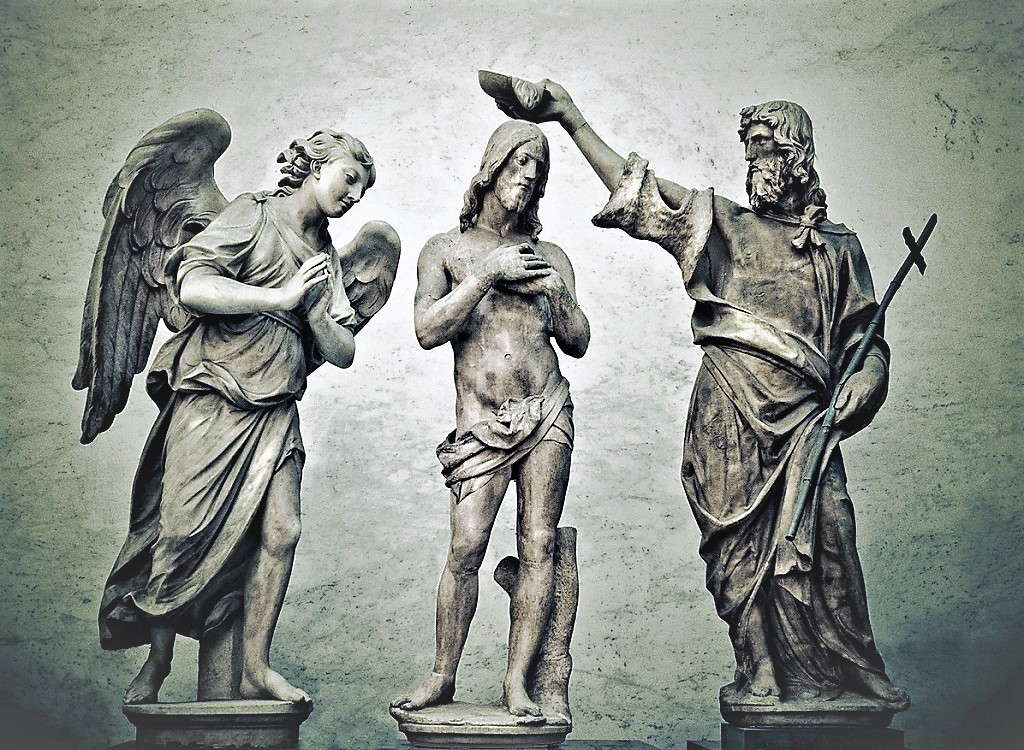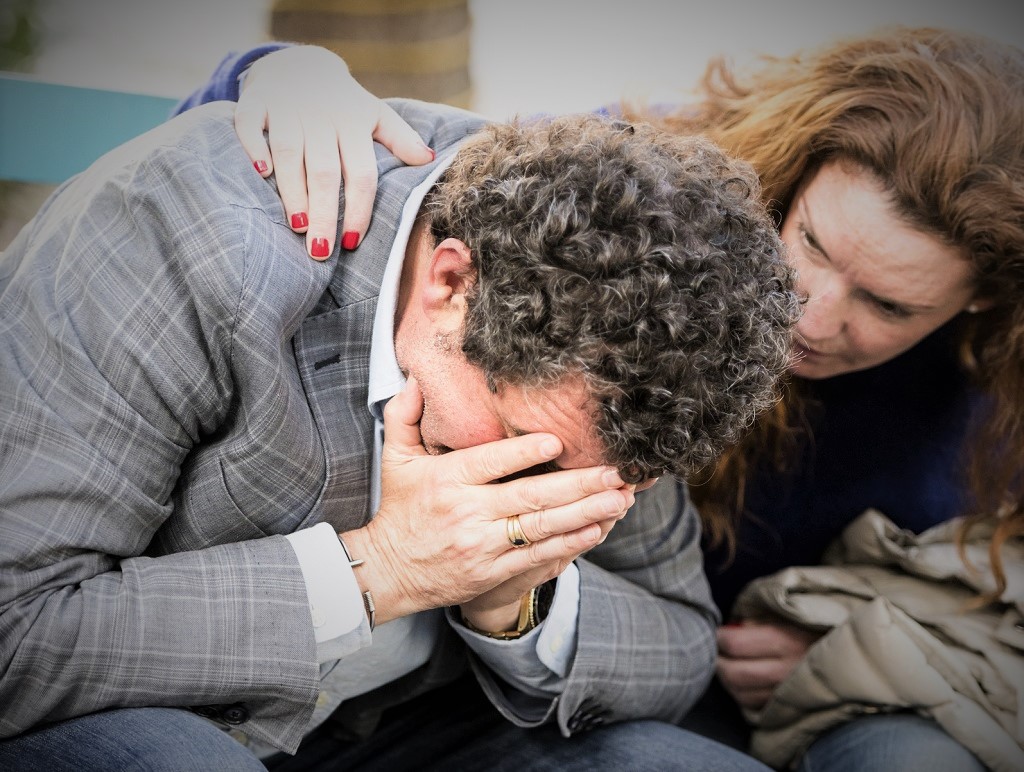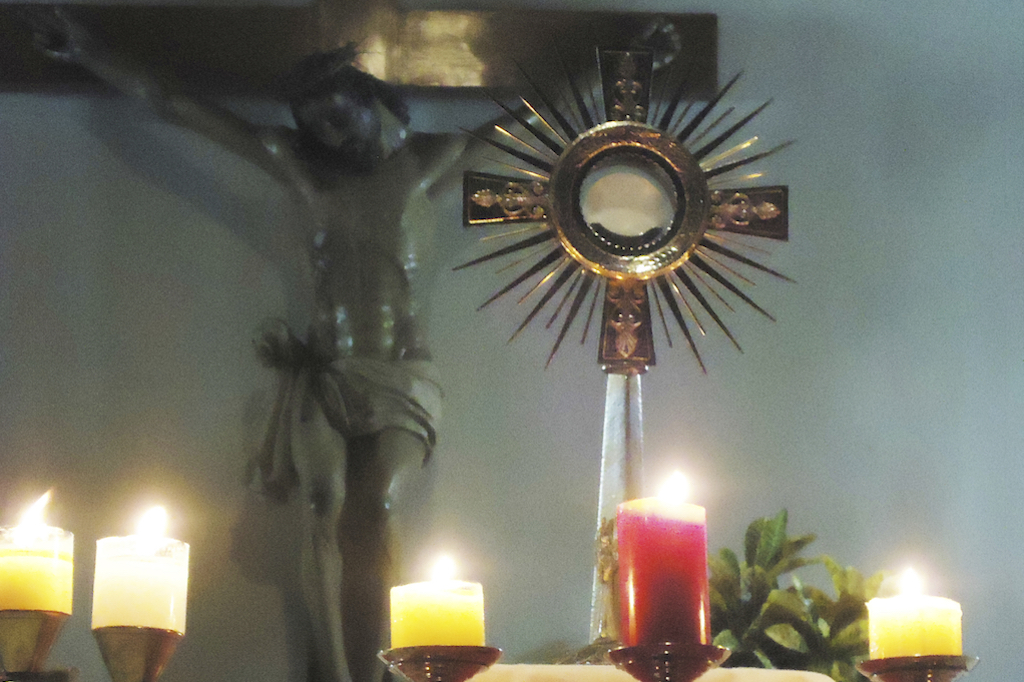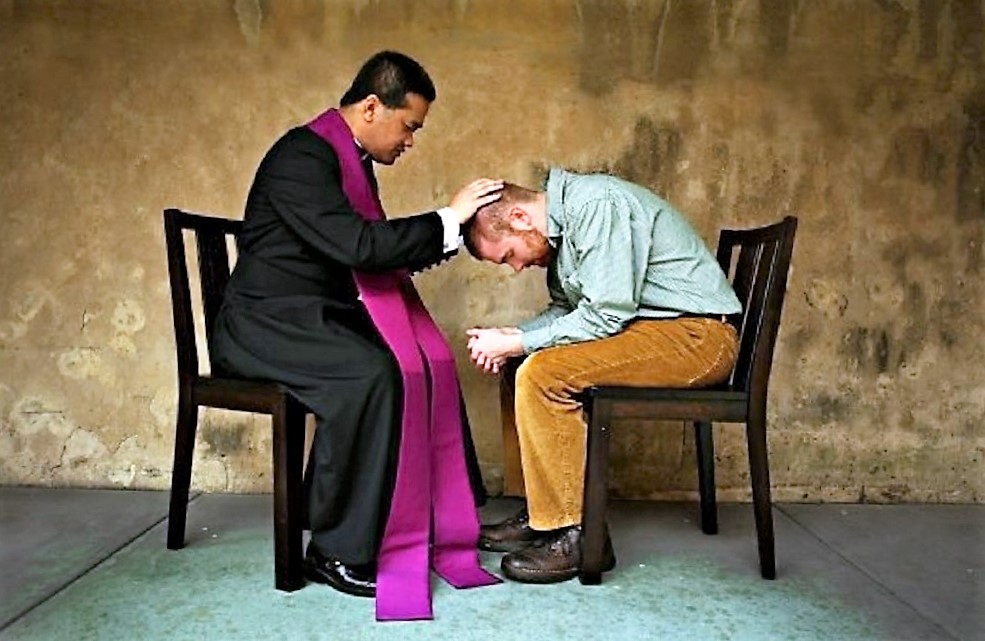Place yourself at the scene: You see a small crowd gathered around a large, wild-looking man with hair and beard gone bushy – almost savage looking. He – John the Baptist – wears only a tunic made of camel and preaches that the Messiah is near. This John is an almost ferocious–looking creature, but people followed and listened, hungry for not simply spiritual direction but for the sorely-needed Chosen One. They follow this man, this preacher, to the Jordan River.
One by one, John baptizes them with water. He cautions them though: There is one coming who will baptize in water and the Holy Spirit. That is what we all need, because in that baptism is grace.
And one day, as John is preaching and baptizing, Jesus come to the Jordan. John halts: That is Him! That is the Lamb of God! He is the one who will take away our sins!
What does Jesus do? He doesn’t step up on higher ground and begin preaching. He doesn’t tell everyone that what John has said is right on target. No, he wades into the water, and is baptized.
This striking scene, that we celebrate today, gives us much to ponder. As Catholics, we too are baptized. And we are baptized in water and the Holy Spirit. This baptism (along with confirmation and Holy Orders) leaves an “indelible seal” upon us. That mark or seal actually changes us, and it’s permanent. We can’t undo it, even if we stop attending Mass, even if we declare ourselves a witch or warlock, even if … we are marked with the sign of Christ for all eternity. For children, it is the parents’ responsibility to nurture the faith of their child, to care for the child’s soul. As the child gets older, more and more of the responsibility for one’s relationship with God shifts to the individual, until that person reaches maturity. And each of us, when we dies, will need to account to God as to how and why we chose what we did for the care (or lack thereof) for our soul.
Jesus’ baptism was NOT a superhero movie scene. He did not enter the Jordan an “ordinary” man and emerge as a shining god or an all-powerful king ready to smash the Roman empire. No, it was a picture-perfect example of what we are to do. We need to seek the Lamb of God through trusted sources. We need to be humble enough to admit that we need help, that we need the grace God makes available to us. We need to strip off all the worldly things that hold us back from our beloved Father. Most importantly, we need to continuously seek ways to live out our baptismal promises: to reject Satan, to believe in God, Father, Son and Holy Spirit, to live our faith as the Church teaches.
There are not “magicicians” or superpower heroes among the faithful. Instead, there are those who – every day – decide to live out their faith. As Father Bede Jarrett said, “Baptism doe not set us right, but, by the high privilege is affords, it gives us the power to set ourselves right.” And with the grace of baptism, so we must set ourselves right, every day.



